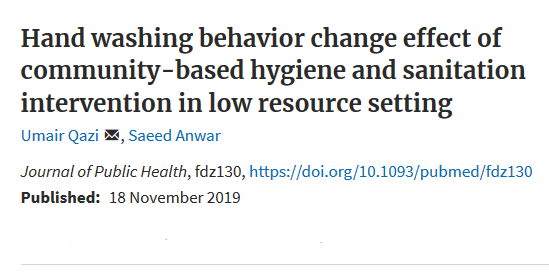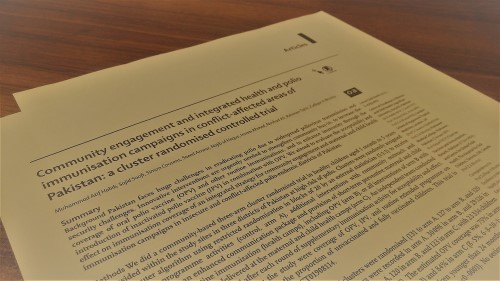A cross-sectional study conducted by PIPH faculty members Dr. Umair Qazi, Dr. Abdul Latif, Dr. Saeed Anwar, Dr. Farhat Malik (PMC faculty) and PIPH student Gulmashka Irshad has been published in International Journal of Gynecology & Obstetrics, a high impact factor journal.
The study titled "Assessment of birth preparedness and complication readiness among pregnant women attending the Obs/Gynae ward in two teaching hospitals in Peshawar, Khyber Pakhtunkhwa, Pakistan" assessed knowledge of pregnant women receiving antenatal care at the study sites about birth preparedness and complication readiness (BPCR) and their knowledge about warning signs during pregnancy, labor, and postpartum.
The study concluded that knowledge about BPCR and warning signs during all three phases of pregnancy was low. It was also concluded that increased antenatal visits present an opportunity to educate the mothers about BPCR and warning signs.
The publication can be accessed at the following link:
https://obgyn.onlinelibrary.wiley.com/doi/abs/10.1002/ijgo.13227












